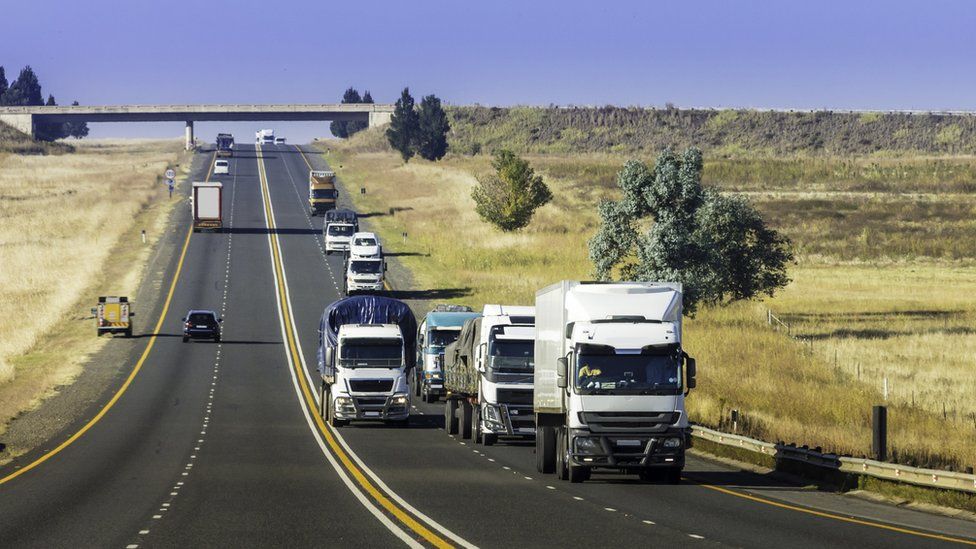
CHALLENGES
The logistics industry in Africa is faced with numerous heart-wrenching challenges that can often feel like too much to bear. As the co-founder of UjuziNet Group and a former transportation manager, I can attest that the need to reduce transportation costs is one of the most emotionally draining concerns for the industry. However, it is not the only concern as there are several other pain points that also require attention. Perhaps the most emotionally taxing concern is the need for greater innovation and technological advancements while being mindful of budget constraints. Here are my six of the top challenges that the industry is currently facing:
Fuel costs - The soaring cost of fuel is a major source of struggle and hardship for fleet businesses in Tanzania and throughout Africa. It is emotionally taxing to witness these expenses continue to rise, causing financial strain on already struggling companies. The effects of these rising fuel costs ripple throughout the entire economy, causing pain and difficulty for all. The burden is especially heavy for those who rely on transportation for their livelihood, as they struggle to keep their businesses afloat amid these mounting costs.
Business process improvement - Despite the need for new technology, it can be emotionally overwhelming to stay on top of transportation business in the diverse and vibrant country of Tanzania, where the constant advancements in business processes and opportunities can be both exciting and financially challenging. The stunning landscapes and rich cultural heritage of Africa can sometimes be overshadowed by the added cost and pressure to adopt these new technologies, which can be a difficult decision for transportation business owners. However, with determination and resilience, we can strive to improve and adapt to the constantly evolving business world and make a positive impact on our beautiful continent.
Improved customer service - Customers expect full transparency and constant updates on the location of their delivery, especially in the vibrant and diverse country of Tanzania and throughout the vast continent of Africa. It can be emotionally taxing for those in the transportation industry to constantly strive to meet these expectations and ensure timely and satisfactory delivery to all customers.
Driver shortage and retention - in Tanzania, where the roads are rough and the heat can be unbearable. It's especially difficult in Africa, where the demand for transportation is high but the pool of qualified drivers is limited. It's emotionally exhausting to constantly worry about finding and keeping reliable drivers, especially when their actions can have such a major impact on the success of the business. It's a constant battle to maintain a strong and trustworthy team, and it takes a toll on the mental and emotional well-being of those in charge.
Government regulations - Carriers are faced with emotionally draining compliance regulations from various authorities requiring them to adhere to strict regulations and compliance measures. These regulations can be emotionally draining for carriers, who must constantly navigate the complex rules and regulations set forth by various authorities. Despite the challenges, these businesses remain committed to compliance, working tirelessly to ensure that they meet all necessary requirements and standards. In the end, this dedication to compliance is essential for the safety and well-being of all those who rely on transportation services. Those who are in Transportation , understand various compliance to cross Zambia. This region is one of the very expensive with dozens of compliance which you must adhere to succeed in this transportation business.
Environmental issues - The compliance costs associated with emission reduction regulations can be emotionally overwhelming.
Technology strategy and implementation - While the benefits of new technologies are clear, the emotional burden of paying for and implementing these improvements can be challenging especially for ERP Systems which are still operating as Premise based softwares.
SOLUTIONS
To solve all above challenges, we have a unique and the most affordable transportation software : EMA Fleet system.
EMA Fleet System is a comprehensive transportation management solution designed to address the various challenges faced by transportation businesses in Africa. This system includes a range of modules that work together to streamline operations, reduce costs, and improve efficiency.
SECURITY OPERATIONS
For data security, we have developed a safe and secure system with a proper security setting to avoid any type of hacking. For privacy purpose, just like how we did with Sportpesa, Banks and 20 fleet businesses in Tanzania and Zambia. We will sign non-disclosure agreements to bind us not to disclose any information during our implemention.;
Adelard Urassa,
Chief Technology Officer, UjuziNet Group (EMA Cloud ERP systems)